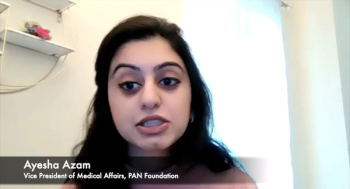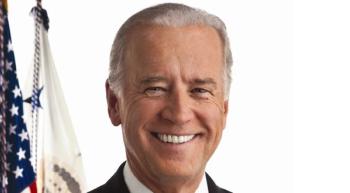
A senior cancer survivor shares her experiences with post-cancer finances and offers some advice to others in the same situation.

A senior cancer survivor shares her experiences with post-cancer finances and offers some advice to others in the same situation.

A patient offers advice on getting patient portals, electronic medical records and technology organized and functioning correctly.

Survival rates in this study were similar across cancer types including colorectal and prostate cancers, which may indicate a need for updated policies to include more patients.

As transportation to treatments is one of the many important aspects patients with cancer must consider after receiving a diagnosis, there is room for improvement in terms of accessibility and affordability, says an expert from the Patient Access Network Foundation.

Navigating medical leave and insurance forms can be nerve-wracking and feel high stakes for some, writes a cancer survivor. Here, he offers advice on how to manage that stress.

CURE spoke with a cancer rights attorney about what financial toxicity is and ways to address this burden before assistance is needed.

CURE® spoke with a cancer rights attorney about employment rights and how patients and their caregivers can learn more to ensure they are being protected.

Recent study results show an association between living in an area of socioeconomic deprivation and poor outcomes for patients with cancer who were treated in clinical trials.

CURE® spoke with Monica Fawzy Bryant, chief operating officer of Triage Cancer, about health insurance options and what patients with cancer need to know.

George Valentine needs something from his elected representatives in Congress: securing predictable annual out-of-pocket costs under Medicare Part D’s prescription drug plan.

From a Marine veteran walking 8,500 miles over the last 24 years to raise cancer awareness and funds for treatment to researchers using cancer cells from a deceased osteosarcoma donor to help advance treatment, here’s what’s happening in the cancer landscape this week.

From an oncologist forgiving the medical debt of 200 of his patients to “Saved by the Bell” Star Dustin Diamond being diagnosed with stage 4 cancer, here’s what’s happening in the cancer landscape this week.

The study found that the risk increased despite receiving care at a highly specialized center, although neighborhood poverty did not have the same degree of impact on children with the nonmalignant disease.

From the Ohio state legislature tackling the “fail first” provision insurances put in place to keep patients with advanced cancer on generic drugs that are less effective to COVID-19 becoming the third leading cause of death in the United States behind cancer, here’s what happened in the cancer landscape this week.

Dr. Knight presents findings that suggest financial intervention can improve mortality rate in patients with hematologic malignancy at the 2020 ASH Meeting.

A new report from the Cancer Support Community shows that extra attention is needed from patient providers to address financial toxicity.

As some workplaces begin to head back to the office, it's important for patients with cancer and cancer survivors to understand the laws that protect them during the COVID-19 pandemic.

Businesses are reopening offices, leaving unanswered questions for employees who have cancer or take care of someone who does.

Financial hardship, particularly related to debt and psychological distress, can affect young female cancer survivors who may have to reduce hours or stop work completely.

President-elect Joseph R. Biden Jr. has won the 2020 presidential election, which could impact the future of cancer care – in particular with the Affordable Care Act and the Cancer Moonshot Initiative.

From Nov. 1-Dec. 15, consumers can shop for health plans offered under the Affordable Care Act. One advocate suggests that all patients compare policies to ensure the best fit for their particular needs and budget.

Justice Amy Coney Barrett was sworn in to the Supreme Court on Tuesday. Her vote would be instrumental in deciding the fate of the Affordable Care Act. If it’s repealed during November’s landmark case, many could lose access to cancer screening and treatment.

The dependent coverage provision in the Affordable Care Act has helped adolescent and young adult patients with cancer stay on health insurance longer than those who had cancer before the ACA was signed into law.

On social media, CURE® recently asked its readers to share how cancer has affected their careers.

Weighing the cost of CAR-T cell therapy in treating blood cancers is a finical burden for many patients with blood cancer.

CancerCare unveils its new online support for members of the LGBTQ+ community who also have cancer.

In this post, learn more about financial toxicity and how to combat it.

In this week’s episode of the “CURE Talks Cancer” podcast, we spoke with Monica Bryant, chief operating officer of Triage Cancer, about the rights patients with cancer have when it comes to the workplace.

According to the lead study investigator, work needs to be done to ensure financial toxicity is not a deterrent to clinical trial enrollment and that trial sponsors and payers should consider trial expense reimbursement.

In this episode of the “CURE Talks Cancer” podcast we interview genetic counselor Dana Farengo Clark on how genetic counseling is adjusting to the new normal and shifting into the virtual era of cancer care.